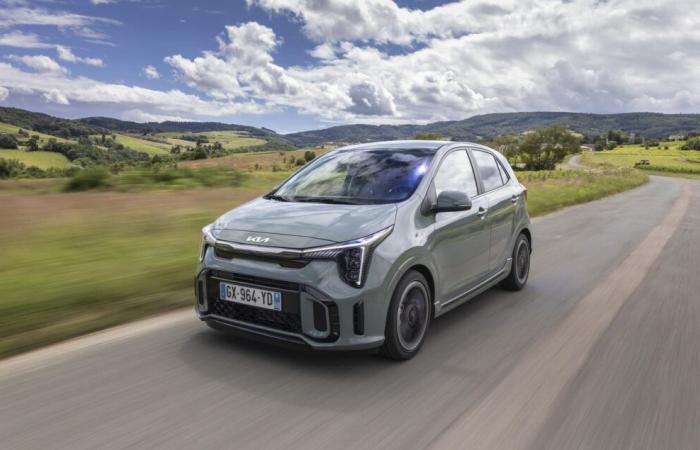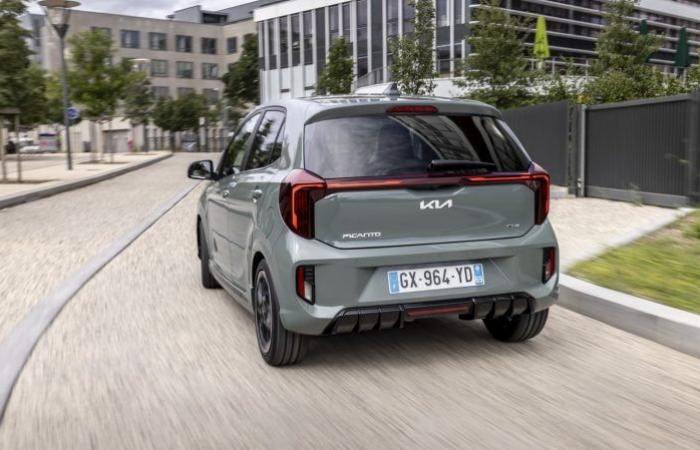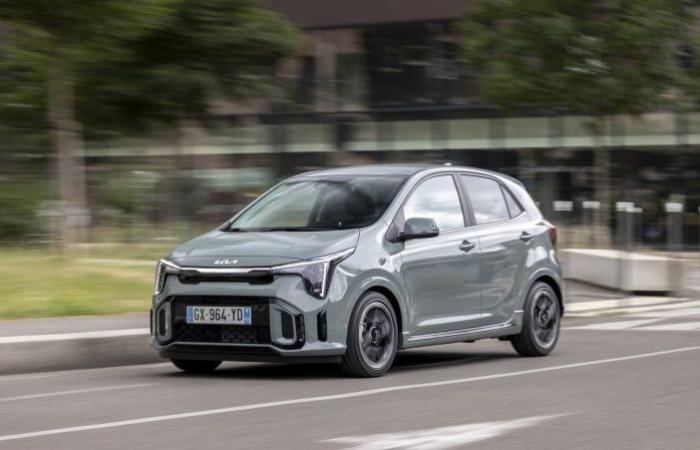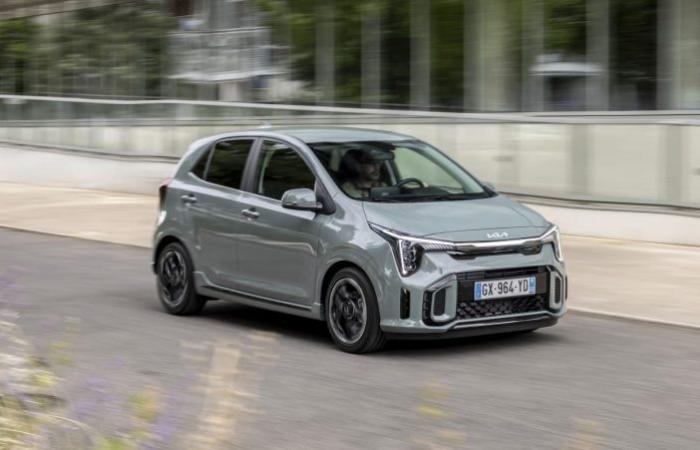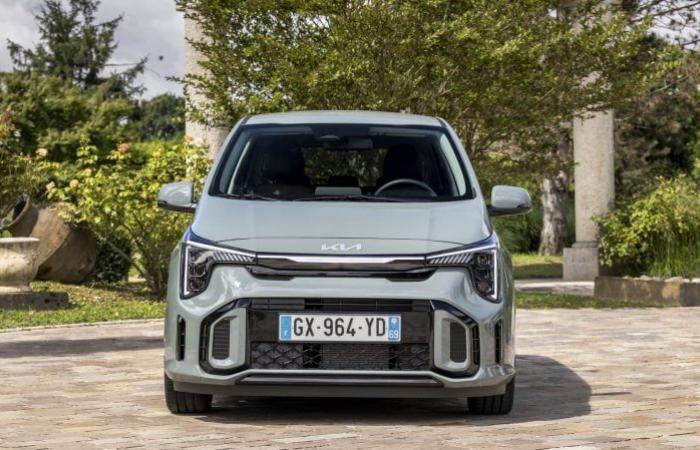The time to conform its restyled Picanto to GSR2 standards for safety and Euro6e for pollution, Kia took a little time before marketing the 2023 model year of its small city car. But for those who had to wait, the reward is still there, with a restyling so important that it looks like a new generation. If everything has changed outside, with a frankly virile and rather nice look, this Picanto remains, basically, the same as since 2017. Moreover, this is clearly visible inside where the dashboard has not changed . Molded in all hard plastics as is the rule in this category, it still presents well thanks to a grain avoiding the low-end appearance. But it is true that its design is not very modern, especially compared to the new exterior style.
More modern equipment
The evolution actually lies in the adoption on all Picantos of the 4.2-inch digital meter behind the steering wheel, as well as the 8-inch central touch screen integrating navigationboth previously reserved for the high GT-Line finish only. As already mentioned, the standard equipment also includes GSR2 electronic safety aids including, among others, driver vigilance monitoring, automatic emergency braking, lane keeping assistance as well as vehicle alert. overspeed reading the signs. These last two assistances – horrifying for the second, and annoying off the motorway for the first – requiring a total of 6 operations to be cut off, provided that you have previously programmed direct access to the dedicated menu via the “star” key ” on the steering wheel.
In short, you will have understood that, as is often the case, the ergonomics of these electronic aids is far from impeccable. And then, even if they have become obligatory, officially for security reasons, we can wonder if some of these expensive devices and not always relevant in their operation are indeed essential or at least useful on these small cars intended mainly for the city or peri-urban journeys.
City dweller above all
Because the Picanto is above all a city car which, at only 3.61 m, offers decent rear seats, where teenagers will find room for their long legs, as well as a decent trunk, which we measured at 180 Dm3 with our rigid suitcases. In the category (increasingly sparse since the discontinuation of the Renault Twingo, Fiat 500, non-renewal of the Citroën C1 and Peugeot 107, etc.), the Picanto therefore offers one of the best space/space ratios given its well under 4 m. Dimensions that allow it to park and navigate easily in town, where very smooth steering and clutch control, without forgetting its good turning radius (4.70 m), simplify your daily life. Especially since the 5 gearbox control, if not the fastest of its kind, has made progress since the first generations of Picanto where it was rather rough.
A small, highly available engine
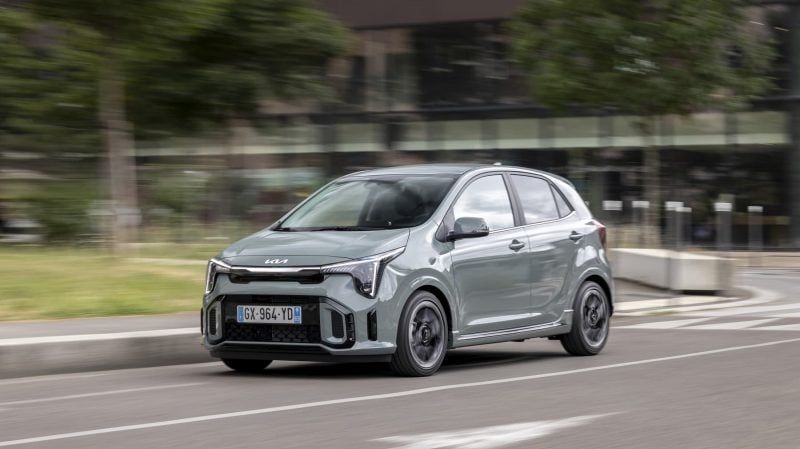
In this urban use, we also benefit from the smoothness and availability of the 1.2 4-cylinder, the power of which has however been reduced from 84 to 79 hp to comply with the Euro6e depollution standard. Which does not prevent it from easily accepting to resume below 1,500 rpm, including in third gear. Of course the thrust remains modest, but this low rev zone shows neither vibrations nor jerks, therefore not requiring systematic downshifting.. The only annoying downside of this Picanto in town mainly concerns comfort, with a dryly damped rear axle, particularly on the road connections, which the 16-inch wheels of the GT-Line finish (14 inches otherwise) amplify. A weakness which does not diminish with increasing speed, and which is therefore also found on the road or motorway.
Road, but not too much
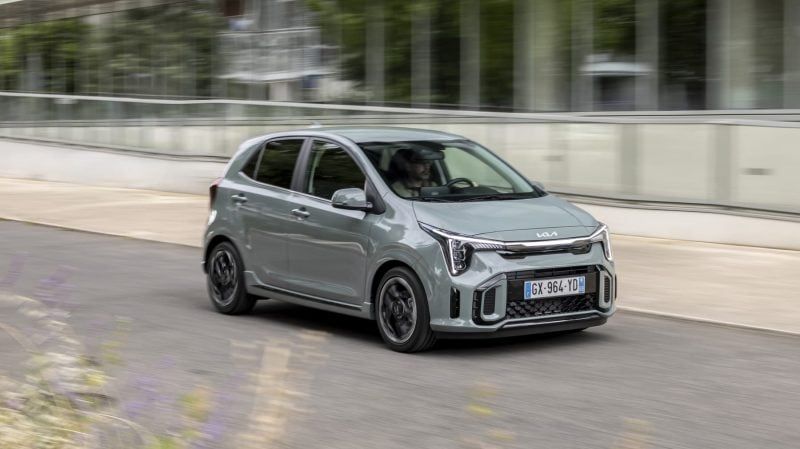
Adding to this very loud rolling noises, and a driving position suffering from the lack of depth adjustment of the steering wheel (adjustment only in height and to a fairly small amplitude), we understand that this Korean is not made for long distances, where it will quickly tire passengers and driver. Who will have to choose between distance in relation to the steering wheel or the pedals for adjusting their seat, and will have to put up with a stable chassis on the road but with average efficiency in addition to steering that is far too assisted, without consistency. While, on the motorway, he will have to constantly correct the direction lacking a sufficiently marked midpoint, to the point that the driver vigilance alert, which monitors activity at the wheel, can panic every 10 minutes in advising you to take a break!
It remains to compete with Dacia…
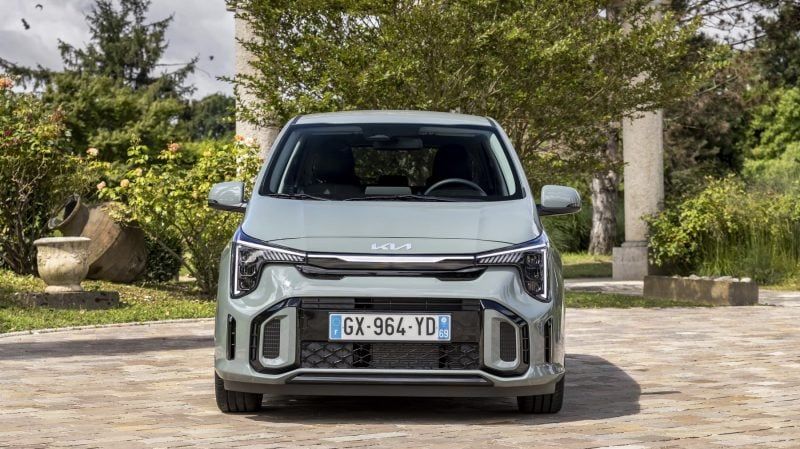
Finally, with only 79 hp and 113 Nm of somewhat high torque, this little one complicates overtaking on the road, impossible to do without a – very – long straight line, and suffers on highway ramps. We measured it several times during our trip from the Lyon region to Paris. At least this 1.2 has very reasonable consumption with around 5.5 l/100 km in urban/peri-urban use, and barely more than 6.5 l/100 km on the motorway.. But undoubtedly long journeys must remain the exception with it, as with all its rivals…or almost. If it is one of the best small city cars on the market, this Kia has nevertheless, like all its rivals, inflated its prices quite a bit, since it starts today, certainly better equipped, at €15,990 in 1.0 63 hp ( 18,490 € for this 1.2 GT-Line) instead of a little more than 13,000 € in 2023. Which does not make it easier for him in the face of a Dacia Sandero offering much more versatility at a lower price. Certainly the Romanian is less compact with its 4.09 m, but does everything better, and starts from €11,990 in 1.0 65 hp, and €14,250 in 1.0 100 hp LPG.

